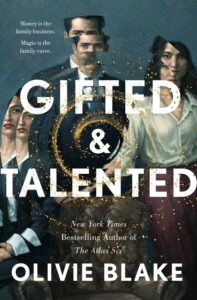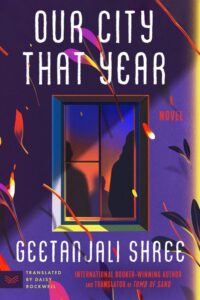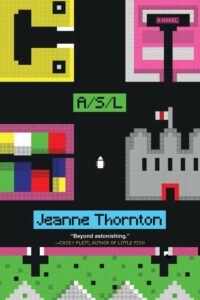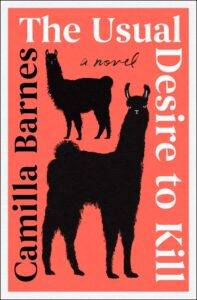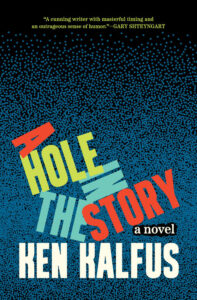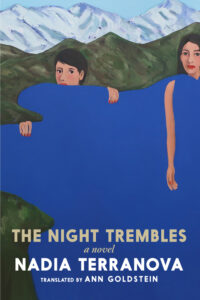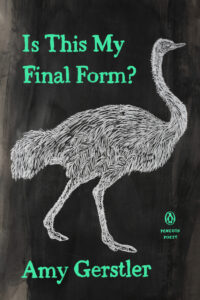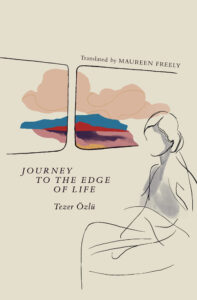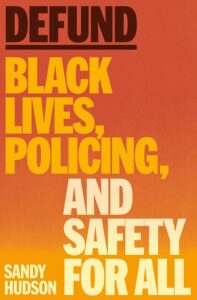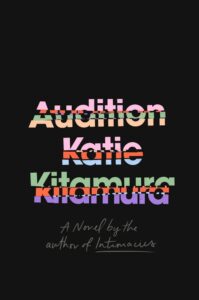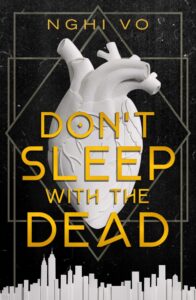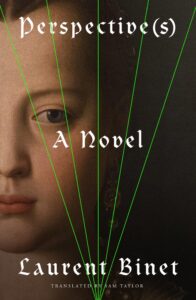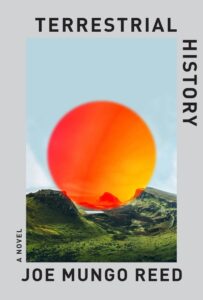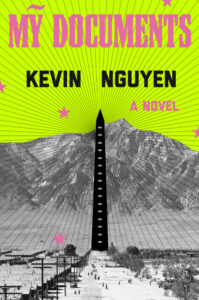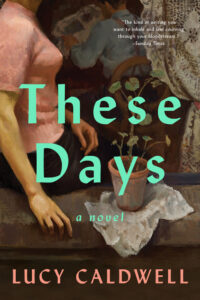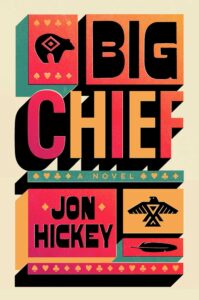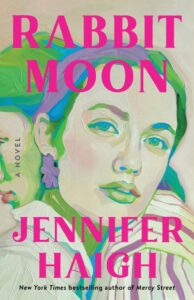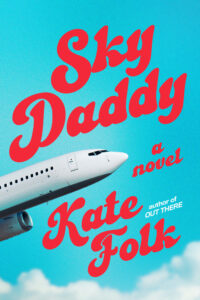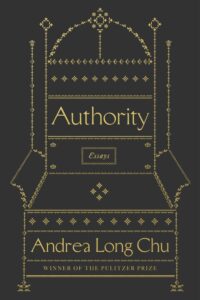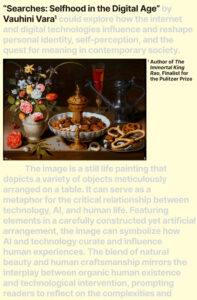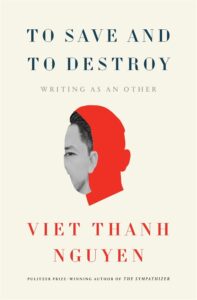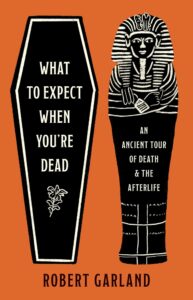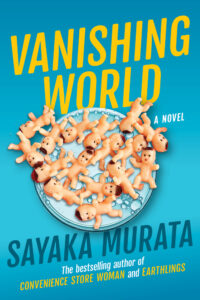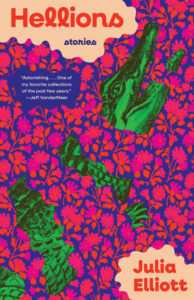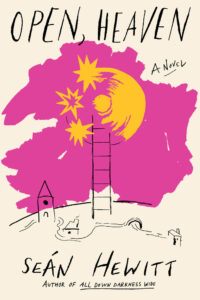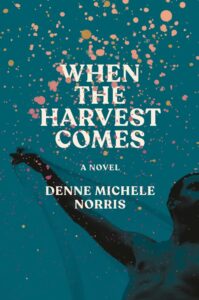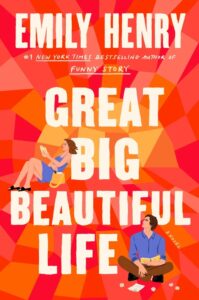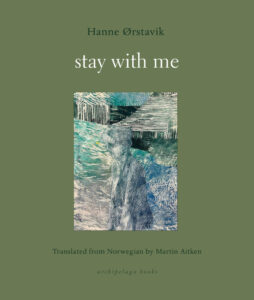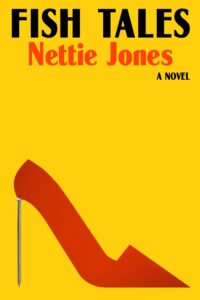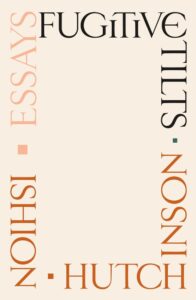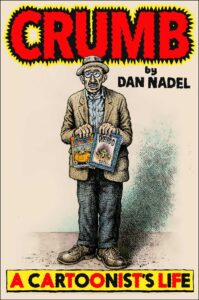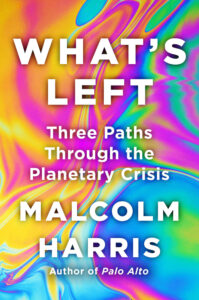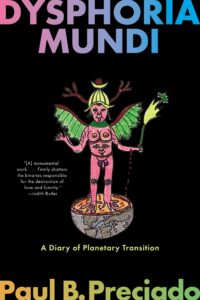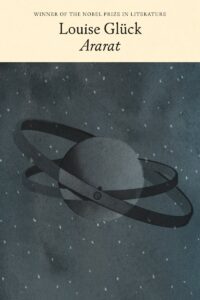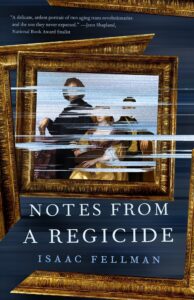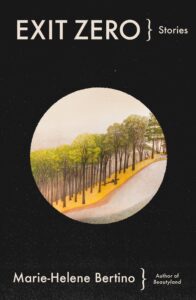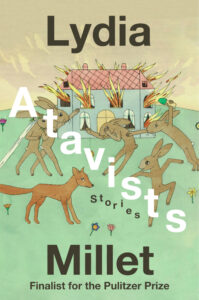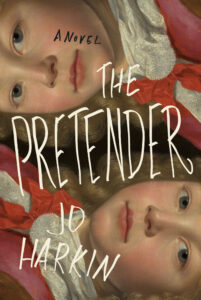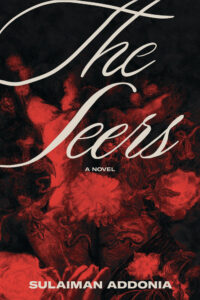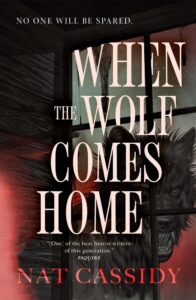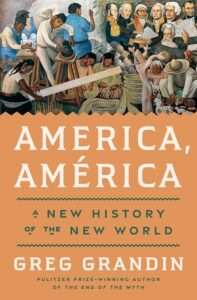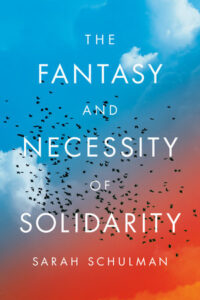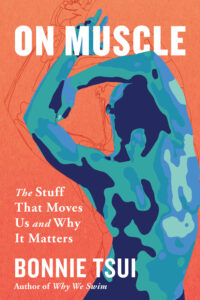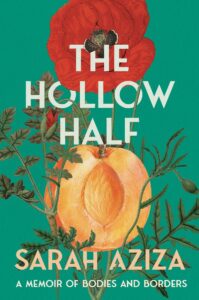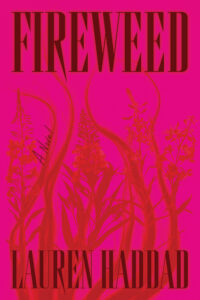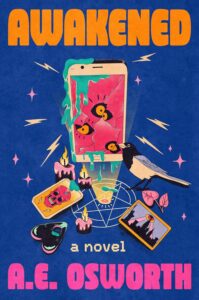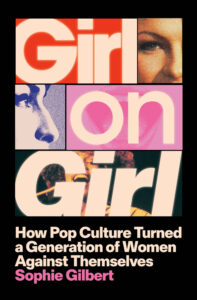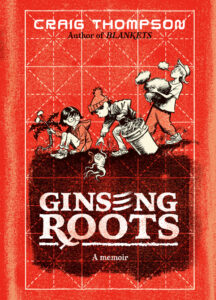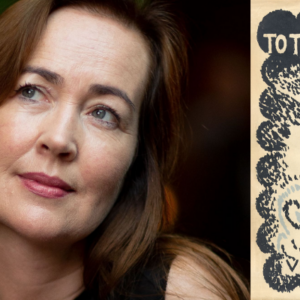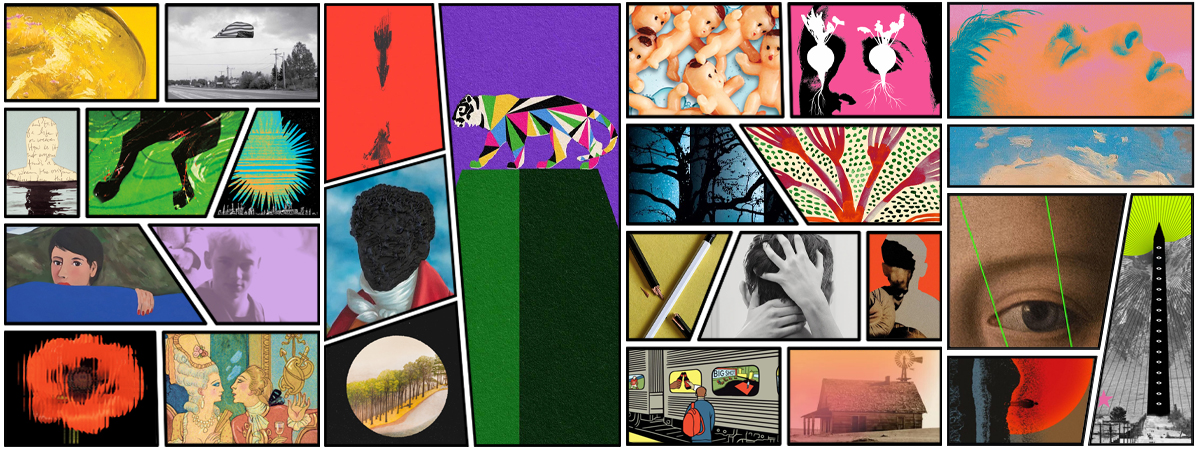
Lit Hub’s Most Anticipated Books of 2025
291 Books We're Looking Forward to in the New Year
APRIL
Olivie Blake, Gifted & Talented
Tor Books, April 1
You’re going to see a lot of people comping this to Succession and, in that superficial “so is King Lear” way, they’re not wrong—three siblings, imperial father, death and inheritance drama—but the real comp for this book is The Royal Tenenbaums crossed with Fleishman is in Trouble. The Wren siblings are all former prodigies now facing their less-than-prodigious thirties and all former gifted-and-talented kids will see themselves in their struggles (as outsized as their struggles might be)—but Blake has some fun tricks up her sleeve, including a cool riff on magical powers and a narrative voice to die for. Absolutely her best book yet. –DB
Geetanjali Shree, tr. Daisy Rockwell, Our City That Year
HarperVia, April 1
In 2022, Shree’s novel Tomb of Sand, also translated by Rockwell, won the International Booker Prize, making it the first novel translated from any Indian language to do so; Our City That Year, originally published in Hindi 25 years ago, sounds nonetheless very timely: a book about violence and uncertainty driven by religious difference, about a city imploding while its intellectuals wring their hands and drive themselves to distraction. –ET
Jeanne Thornton, A/S/L
Soho Press, April 1
Three 90s teens (Lilith, Sash, and Abraxa) meet on Al Gore’s internet, “and one of them dreams of computers.” This novel, from the visionary Jeanne Thornton, sets out to “queer our notion of nostalgia” via a friendship saga rendered in glimmering prose, chatroom transcripts, and the occasional diagram. The result is a BIG book—expansive, ambitious, idea-driven, and full of delightful details. And as in Thornton’s previous novel, Summer Fun, characters jump off the page. –BA
Camilla Barnes, The Usual Desire to Kill
Scribner, April 1
A daughter visiting her oddball parents reports, at the end of her visits, “the usual desire to kill” and, well, I can relate. This sounds hilarious and delightful, particularly for all of us who find that we love our parents even as we also want to send them on a rocket ship into space forever. Especially if your parents, like Miranda’s, also have llamas. –DB
Rav Grewal-Kök, The Snares
Random House, April 1
The Snares may be the most cynical take on government actions I’ve ever come across. In Rav Grewal-Kök brilliant and tragic sendoff of the post-9/11 world, a bored bureaucrat is recruited to approve suggested targets for the nascent drone program, and instead finds himself set up as the patsy for a deeply racist and bloodthirsty initiative. If Graham Greene had written a Shakespearian tragedy, it would read something like this. –MO
Ken Kalfus, A Hole in the Story
Milkweed, April 1
Ken Kalfus is my favorite writer that no one (it seems) has heard of; his latest book is “a darkly comic novel dissecting the misjudgments, hypocrisies, and occasional good motives that drive our politics and our journalism, as well as our most intimate personal relation,” which honestly might be too on the nose, but also might be just right. –ET
Nadia Terranova, tr. Ann Goldstein, The Night Trembles
Seven Stories Press, April 1
A boy and a young woman, each longing for escape, find an opportunity for freedom when a massive earthquake rocks Sicily and Calabria in 1908. Their release, from the tyrannical abuse of a mother and the impending grips of a loveless marriage, is hard-won. though, and comes at a great cost. This lyrical book from the award-winning Italian author of Farewell Ghosts is a stark examination of resilience and change. –JF
Amy Gerstler, Is This My Final Form?
Penguin Books, April 1
In this collection Gerstler works with themes of transformation, transition, and becoming, all with wit and unexpectedness. –OS
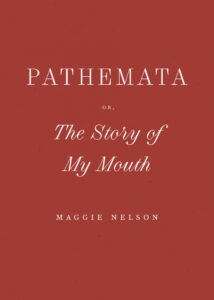
Maggie Nelson, Pathemata, Or, The Story of My Mouth
Wave Books, April 1
We have a new Maggie Nelson text! Pathemata, Or, the Story of My Mouth is an experimental pain journal based on Hervé Guibert’s The Mausoleum of Lovers about a decade spent living with severe jaw discomfort, and the thoughts, dreams, nightmares, and questions that surround the experience. This text owes much to Deleuze and Guattari’s work on the “symptom,” and Deleuze’s further work attempting to bridge literature and psychology and using a method of “symptomology” he discovered in Nietzsche. But it’s much funnier, and—I’m going to be frank with you—more enjoyable to read. –OR
Tezer Özlü, tr. Maureen Freely, Journey to the Edge of Life
Transit Books, April 1
This is the second of Özlü’s books to be posthumously translated into English, and follows a solitary, unnamed writer as she explores Europe, seeking out the graves of her favorite authors. Journey is an atmospheric and introspective travelogue from the perspective of an obsessive with a deep passion for literature; she finds herself in new cities, new lovers, and new ways to compare herself to the brightest lights in her personal literary canon. –JF
Sandy Hudson, Defund: Black Lives, Policing, and Safety for All
Pantheon, April 1
Defund isn’t just a deeply researched examination of why policing does not, in fact, improve public safety; it’s also a look at how investing in communities can achieve what policing cannot. –OS
Katie Kitamura, Audition
Riverhead, April 8
Kitamura is one of the most entrancing novelists at work today—her work consistently challenges readers to penetrate a world of gestures and presumptions to aim for a deeper understanding, only to shift terrain again and leave us with ever more questions. In her latest novel, Audition, a man and a woman sit down to lunch in a New York restaurant. Their narratives, intertwined and in fact competing, soon call into question everything we believe we know about the scenario, creating a truly uncanny and unforgettable reading experience. –DM
Lynn Steger Strong, The Float Test
Mariner, April 8
I will always be excited for a new novel from Lynn Steger Strong, who is one of our greatest chroniclers—or perhaps it is better to say unpickers—of the American family. This one is about secrets and long-held grudges and stymied artists and Florida and sisters coming together, or not, after the death of the matriarch. Can’t wait to read. –ET
Nghi Vo, Don’t Sleep with the Dead
Tordotcom, April 8
Nghi Vo’s The Chosen and the Beautiful remains the high-water mark for the flood of Gatsby adaptations that followed the book’s arrival in the public domain—so I’m incredibly excited that she’s returning to her magical version of the story, this time picking up with Nick in the 1930s. My soul is ready, my fingernail is painted black. –DB
Laurent Binet, tr. Sam Taylor, Perspective(s)
FSG, April 8
From the author of HHhH, a post-modern, epistolary murder (and art) mystery set in Renaissance Florence—which opens with a painter stabbed to death with a chisel, lying prone under his unfinished frescoes; minor investigation into his quarters shows an obscene painting—but why? I’ll read anything by Binet, but especially something like this. –ET
Joe Mungo Reed, Terrestrial History
Norton, April 8
A time-twisting family drama that starts with a fusion scientist on the coast of Scotland meeting a stranger—a stranger from her future, from Mars. This one gives me big Emily St. John Mandel and Ethan Chatangier vibes, perfect for reminding us what we’re all fighting for on this little green marble of a planet. –DB
Kevin Nguyen, My Documents
One World, April 8
In Nguyen’s second novel, four Vietnamese Americans’ lives are upended when violent attacks across America create a national panic, and a new national policy sends Vietnamese Americans to internment camps. Jen and Duncan are sent to Camp Tacoma while Ursula and Alvin receive exemptions. What follows is a near future that’s all-too-possible: in the camp, they are cut off from the outside world and the internet, but when Jen finds a way to get messages to Ursula, she sees a chance to tell the world about the horrors they face. “Finely attuned to both the brutalities and mundanities of racism,” this book promises to be both a timely read and reminiscent of this country’s not too distant past. –EF
Lucy Caldwell, These Days
Zando/SJP, April 8
Acclaimed Irish playwright and novelist Lucy Caldwell has won a trove of major awards back across the pond (including the Dylan Thomas Prize, the Walter Scott Prize, and the BBC National Short Story Award) where this, her forth novel, was published in 2022. A story of haunted love and heartbreak set during the Belfast Blitz in 1941, These Days, which the Guardian called “breathtakingly poignant,” looks set to be Caldwell’s breakout book in America. –DS
Jon Hickey, Big Chief
Simon & Schuster, April 8
Full disclosure? I’ve been anticipating this book ever since encountering Hickey’s slick, propulsive writing at a conference years ago. Following Mitch Caddo, an ambitious law grad and “the youngest ever tribal operations director for the Passage Rouge Nation of Lake Superior Ashinaabe,” this debut novel is a political thriller with teeth. On the eve of the Tribe President’s presumed reelection, chaos creeps into this community when black hats and old ghosts threaten a peaceful transition of power. Come for the winsome narration, and stay for the big ideas. –BA
Jennifer Haigh, Rabbit Moon
Little, Brown, April 8
When the young adult daughter of a couple just a few years out from a bitter divorce is hospitalized after a hit-and-run in Shanghai, where she has been teaching English, the family goes to the city to attend to her. I love novel that dives deep into betrayal, dysfunction, and family secrets, and Rabbit Moon promises to plumb the depths of all three. –JG
Kate Folk, Sky Daddy
Random House, April 8
Kate Folk has an idiosyncratic, spare style that is well suited to her truly odd, ridiculous, inexplicably poignant subject matters. Her debut novel, Sky Daddy, is the story of one woman and her desire. I should mention, that desire entails being sexually obsessed with planes. The narrator, Linda, conducts a fairly normal life: she lives in San Francisco working a mundane job, goes home to her mundane apartment, and once a month, goes to SFO to take a round trip domestic flight to fulfill her sexual yearning for aircrafts. Again, Kate Folk has an unusual eye and style, but if you buckle up, it’s one hell of a ride. –JH
Andrea Long Chu, Authority: Essays
FSG, April 8
I can’t wait to disappear into this collection of essays from one of my favorite critics, public intellectuals, and—let’s face it—haters, tackling culture in all its forms—and also, in two new essays, taking on criticism itself, and how it should (or can) be practiced today. If anyone should know, it’s Chu. –ET
Vauhini Vara, Searches: Selfhood in the Digital Age
Pantheon, April 8
Novelist and Pulitzer Prize finalist Vauhini Vara’s 2021 essay about the death of her sister is still the most (only?) convincing literary use of AI that I have read. That essay is in this book, which is a book of essays in the original sense, which is to say that it is a book of experiments, of interrogations: of the internet, of form, of possibilities, of ourselves. This is the only AI-related reading I will be doing this year. –ET
Viet Thanh Nguyen, To Save and to Destroy: Writing as an Other
Harvard University Press, April 8
This new work of nonfiction from Viet Thanh Nguyen, the Pulitzer Prize-winning author The Sympathizer and one of contemporary American fiction’s most fearless writers of conscience, is a “personal meditation on the literary forms of otherness and a bold call for expansive political solidarity.” Over the course of six essays, Thanh Nguyen explores the idea of the outsider in literature though the lens of his own experience—weaving together memoir, literary criticism, and political analysis to ask probing questions about the responsibility of the writer in a time of neo-imperialism and forever wars. –DS
Robert Garland, What to Expect When You’re Dead: An Ancient Tour of Death and the Afterlife
Princeton University Press, April 8
Thinking about death is a constant in human history, and Robert Garland’s roving book takes us way back to the misty origins of our cultural and religious obsession. What To Expect is a tour of the ancient world’s death customs: what Mesopotamians, Egyptians, and Romans thought was a good death and how they dealt with bodies; and what rituals the early Hindu, Jewish, Zoroastrian, Christian, and Islamic faiths practiced, and what they thought happened next. Your inner goth kid’s gonna want to read this one. –JF
Sayaka Murata, tr. Ginny Tapley Takemori, Vanishing World
Grove, April 15
Murata’s novels and stories are usually strange, sometimes disturbing, but always a fun-house mirror on another, perfectly imagined world. In her new book, Murata describes a near-future Japan where sex and marriage are taboo and all children are born by artificial insemination. Amane is already seen as odd because she was the product of “copulation.” When she hears about an experimental Eden, where residents are artificially inseminated en masse (including men with artificial wombs) and children are raised collectively and anonymously, she and her husband decide to try living there. Is this new world order a way for Amane to become normal? Only one way to find out. –EF
Julia Elliott, Hellions: Stories
Tin House, April 15
Jeff VanderMeer called Elliott an Angela Carter for our times, and he’s absolutely right. Elliott’s fiction blends folklore and fairy tale, reality and strangeness, the surreal and the mundane to make dazzling mobiles of oddity—and her new collection is shaping up to be her most curious to date. From medieval convents to small Southern towns, Elliott’s protagonists make her strange worlds seem vibrantly real. –DB
Seán Hewitt, Open, Heaven
Knopf, April 15
Irish poet Seán Hewitt’s much lauded debut novel is a story about first love and forbidden desire. James’ new awareness of his sexuality leaves him feeling isolated until he meets Luke, a charismatic and troubled older boy with secrets to uncover. Anne Enright has praised the book, saying the “heightened, poetic state of adolescence is perfectly captured here.” –EF
Denne Michele Norris, When the Harvest Comes
Random House, April 15
The editor-in-chief of Electric Literature makes her full-length fiction debut with a spectacular drama about a queer Black man who learns, on the day of his wedding, that his estranged father has been in a car accident. What ensues is a complicated reckoning with masculinity, family dysfunction, and the hopes we have for making better futures. Delightfully, Norris is as brilliant a novelist as she is an editor. –DB
Emily Henry, Great Big Beautiful Life
Berkeley, April 15
A new Emily Henry book! If you know, you know, and at this point, pretty much everyone knows. (Also, this one is about writers—gird yourselves.) –ET
Hanne Ørstavik, tr. Martin Aitken, stay with me
Archipelago, April 15
A successful novelist is plagued by fears seeded in her childhood, and struggles as she carries those traumas into the complexities of her adult life: marriage, loss, and writing. Told through the narrator’s life and through the life of the protagonist in her novel-in-progress, Ørstavik explores questions of identity and pain, and if stay with me is anything like her previous work, it’s not to be missed. –JF
Nettie Jones, Fish Tales
FSG, April 15
One of Toni Morrison’s last acquisitions at Random House before she devoted herself full time to writing, Jones’ short novel Fish Tales is being reissued this April by FSG after falling into obscurity. In it, 32-year-old party girl Lewis Jones floats between Detroit and Manhattan during the sexually liberated, drug-saturated, disco-blasting 1970s. A novel of desire, pleasure, drugs and sex, it’s also a story of “sexuality and race, agency and exploitation, selfhood and intimacy, sanity and self-destruction, art and the profane.” This promises to be a wild novel, and we’ll all be better for it having been rediscovered. –EF
Ishion Hutchinson, Fugitive Tilts: Essays
FSG, April 15
I have always had deep admiration for Ishion Hutchison as a poet—his language is somehow clinically precise while remaining alive and urgent—so I am excited to spend time with this essay collection, billed as “an incomplete biography of love: love of poetry, discovered in childhood; love of home, with its continual disconnections and returns; and love of the works and artists that look over him with ‘an angel’s aura,’ from Treasure Island to John Coltrane.” –JD
Dan Nadel, Crumb: A Cartoonist’s Life
Scribner, April 15
Robert Crumb is one of the most influential cartoonists of the modern era, an artist who broke comics into new terrain and spearheaded a vibrant underground comics industry. Though less widely known, Crumb’s work is as influential on American visual culture as mainstream icons like Walt Disney or Marvel’s Stan Lee. This new biography from expert Dan Nadel traces Crumb’s turbulent life and far-reaching impact, explaining not only his unique talent, but also how he clawed out the space and money to create comics that were weird, satirical, and adult against the resistance of a conservative and stolid culture. –JF
Malcolm Harris, What’s Left: Three Paths Through the Planetary Crisis
Little, Brown, April 15
Look, things aren’t great, and if our children/grandchildren have any hope of long and fulfilling lives, we’re going to have to change course quickly. So… how? For Harris, one of the more celebrated young lefty writers working today, the answer lies in some combination of progressivism, socialism, and out-and-out revolution. (Spoiler: these are the three paths, and we’re going to have to try them all.) –JD
Paul B. Preciado, Dysphoria Mundi
Graywolf, April 15
I’ll be honest: almost any book described as a “mutant text” is one I’m probably going to be interested in. If that book is written by an already-legendary trans writer and philosopher—in trans years, “legend” status can be conferred on anyone older than 45—then I’m almost certainly interested. The thesis of Dysphoria Mundi is that dysphoria isn’t a condition specific to transgender people but “the condition that defines our times.” I’m not sure how Preciado has managed to arrive at that conclusion, but I’m looking forward to finding out. –CK
Louise Glück, Ararat
FSG, April 15
To me, this is one of Glück’s most intense collections, and while I like the new cover art, I’m mostly excited for an excuse to read Ararat again. –OS
Isaac Fellman, Notes from a Regicide
Tor Books, April 15
Lambda Literary Award-winning author Isaac Fellman’s third full-length novel is a chosen family epic that defies genre; “trans sci-fi/fantasy speculative lit” is a little unwieldy, but it’s as close as we can get. Regicide is the story of Griffon Keming’s attempt to understand the lives of his adoptive parents before they met. Through reading the diaries of his father—an artist, recovering alcoholic and reluctant revolutionary—Griffon unearths the mysteries of the far-off province from which his parents hail, and the secret that propelled them to their new home.
Notes from a Regicide is one of those rare novels that stick with you long after you’ve put it down. Mark it as an early contender for the best book you’ll read in 2025. –CK
Ariana Reines, The Rose
Graywolf, April 15
Romance is in—though perhaps not yet exactly in the ways poet Ariana Reines explores it here. The book, writes Chris Kraus, “explores the contours of something essential, diving deep into pain and complexity and describing them in the most factual way. Reines explores a realm of experience with grief as its trigger. Focused, intense The Rose offers a trail that leads, if not to madness, to something that goes beyond rational sense.” –ET
Marie-Helene Bertino, Exit Zero: Stories
FSG Originals, April 22
I first encountered Bertino through her debut story collection, Safe as Houses, which is transcendent and weird and perfect, and now, how can it be that it is 12 years later that she’s finally publishing a second one? Must have been those three great novels she wrote in the meantime, huh? Fine, I guess. But in any event, I for one am excited to see her return to the short form, and will be looking very much forward to gobbling this book right up. –ET
Lydia Millet, Atavists: Stories
Norton, April 22
Lydia Millet’s new collection explores the emotional journeys of several individuals whose tales begin to collide and intersect, all guided by and interrogating the concept of “atavism,” (which is the re-emergence of a primal evolutionary trait in a non-primitive being). Characters in the modern world begin to experience urges and feelings within them that drive them to do things they know better than to do, to experience things they feel they should be able to control or rationalize. It might sound supernatural, but it’s actually very… normal? Or, should I say… human. –OR
Jo Harkin, The Pretender
Knopf, April 22
The Wars of the Roses are always ripe for story—and Jo Harkin’s turn to historical fiction looks like it’ll be catnip for Tudor/Plantagenet fanatics like myself. Following the little-known true story of a boy raised first as a humble country squire before discovering he might well be the secret heir to Richard III’s throne, it should be a ripping adventure. –DB
Sulaiman Addonia, The Seers
Coffee House Press, April 22
An intense and vibrant story about a young Eritrean refugee’s first days in London as she tries to find her way and struggles to navigate an infuriating immigration bureaucracy. But within the folds of the city and its systems, the protagonist finds ways to express herself through sex, defying a conservative society and its norms. Told in one continuous paragrah, this short, sensual book is filled with tenderness for those caught in impersonal structures, and rages with anti-colonial anger at a UK asylum system that rends apart individuals and communities. –JF
Nat Cassidy, When the Wolf Comes Home
Tor Nightfire, April 22
When FDR said “the only thing we have to fear is fear itself,” he could never have imagined someone would take that thought to so logical—and extreme—conclusion as this, and yet Cassidy’s latest works well on every level. Cassidy’s protagonist is a struggling improv comedian working graveyard shifts at the local diner and wondering how she’ll make rent. Within the first few pages, she’s transformed into the protector of a lost little boy with terrifying enemies & even more terrifying powers. The conclusion feels shattering, inevitable, and completely of our time—by which I mean, very bleak indeed. –MO
Pier Vittorio Tondelli, Separate Rooms
Zando, April 22
Read the classic novel of love and memory—first published in Italy in 1989, and only now available in the states—before it becomes a Luca Guadagnino film. –ET
Greg Grandin, America, América: A New History of the New World
Penguin Press, April 22
Greg Grandin is one of the most exciting, engaging historians working today. So I cannot wait to get my hands on his deeply ambitious, five-century history of the so-called New World that will “fundamentally change the way we think of Spanish and English colonialism, slavery and racism, and the rise of universal humanism.” –JD
Sarah Schulman, The Fantasy and Necessity of Solidarity
Thesis, April 22
The iconoclastic Schulman returns with a call to better understand collective action and solidarity—not as perfect ideals we will ever achieve, but rather as messy impossibilities we must nevertheless strive for. Using case studies of movements across the last near-century of political action, Schulman offers hope (and not a small dose of caution) for how we might, together, truly move the world forward. –DB
Bonnie Tsui, On Muscle: The Stuff That Moves Us and Why It Matters
Algonquin, April 22
Tsui’s follow-up to 2020’s magnificent love letter to water, Why We Swim, is an exploration of muscle and what it has meant to us, from ancient times to the modern age. Blending science writing, investigative journalism, and memoir, Tsui explores the role muscles play in our physical and mental health, how our obsession has come to define and distort beauty standards, and her own experience with her immigrant father’s “in-house Muscle Academy.” –DS
Sarah Aziza, The Hollow Half: A Memoir of Bodies and Borders
Catapult, April 22
I’ve been waiting for Sarah Aziza’s debut book for more than a decade. An elegant, eloquent writer whose work combines memoir with journalistic reportage about the beautiful cultures of the Middle East—and the tragic, sadistic mass dehumanization and destruction of the people, land, history, and culture of that region. In her new memoir, Aziza—a Palestinian-American writer—braids two stories of trauma and hauntings: her own story of almost dying, and her chilling reflections on the systemic annihilation of her ancestral homeland and people. A beautiful and necessary work. –OR
Lauren Haddad, Fireweed
Astra House, April 29
Set in Prince George, an industrial wasteland in Northern Canada, Fireweed follows a stifled housewife as she searches for her missing neighbor, a widow and the target of racist ire as the only indigenous woman in the neighborhood. What follows is a complex exploration of injustice, performativity, and intersectionality. –MO
A.E. Osworth, Awakened
Grand Central, April 29
Osworth is one of our best writers about the internet generation and this sophomore novel looks like it’s going to be a total romp: a coven of trans witches fighting an AI? Come on, that’s exactly what the culture needs in order to be washed clean from all the toxic nonsense of the last few years. I think this one is going to land squarely in the Charlie Jane Anders lineage—we should all be so lucky. –DB
Sophie Gilbert, Girl on Girl: How Pop Culture Turned a Generation of Women Against Themselves
Penguin Press, April 29
Pulitzer Prize finalist Sophie Gilbert’s critique of early aughts pop culture identifies the moment in the late 1990s/early 2000s “when the energy of third-wave and ‘riot grrrl’ feminism collapsed into a regressive period of hyper-objectification, sexualization, and infantilization.” We’re still feeling the effects today, and it’s likely, given everything, to get worse. Woe is me to be of an age where my youth is becoming history, but I’m still glad to have it. –ET
Craig Thompson, Ginseg Roots
Pantheon, April 29
Like many comics readers, the graphic memoir Blankets was my first encounter with Craig Thompson. Ginseng Roots, also a graphic memoir, builds upon the foundation laid out by Blankets, and of course features Thomson’s incredible artwork and use of page and frame. –OS









